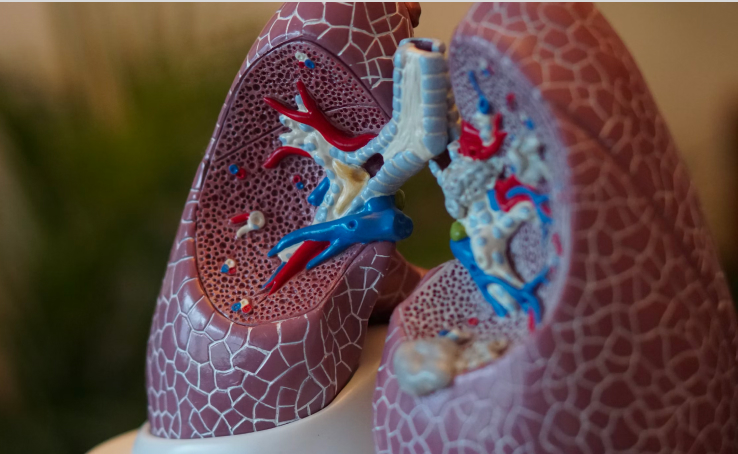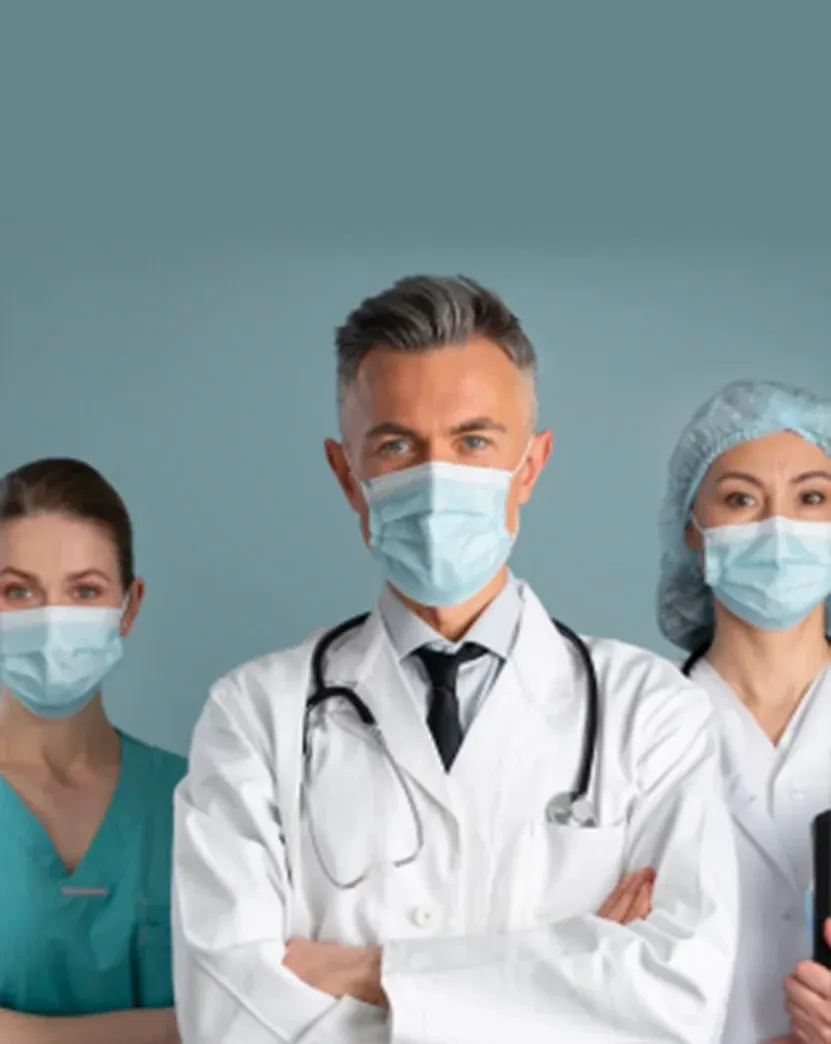Share your medical reports and get an exclusive offer tailored to your needs, requirements and preferences
Avg Price: $ 5500-$ 22000


Treatment Time
Recovery Time
Hospitalization Days
Success Rate
Lung Cancer is a form of cancer that begins in the lungs and mostly affects the cells that line the airways. It is one of the most frequent and lethal types of cancer in the world. If not discovered and treated early, the condition is characterised by uncontrolled cell proliferation in lung tissues, which can eventually develop tumours and spread to other regions of the body.
The frequency of lung cancer is a major concern worldwide, having a considerable influence on public health. Lung Cancer is one of the major causes of cancer-related mortality, according to data from reputable organisations such as the World Health Organization (WHO).
Lung Cancer accounts for a considerable proportion of cancer cases worldwide. There were approximately 2.21 million new cases of lung cancer, accounting for 11.4% of all cancer diagnoses.
Lung Cancer is infamous for having a high fatality rate. It is responsible for about 1.8 million fatalities, accounting for a startling 18% of all cancer-related deaths worldwide.
Smoking is the most common cause of lung cancer and it is estimated that smoking causes approximately 85% of lung cancer cases and the risk increases with smoking length and intensity.
Over the last several decades, the landscape of lung cancer treatment in India has seen substantial developments led by medical innovations. In the country, the pursuit of creative solutions has resulted in a more comprehensive and cost-effective approach to lung cancer treatment.
The rising incidence of Lung Cancer in India has prompted the construction of specialised lung cancer treatment centres throughout the country. The Lung Cancer treatment arsenal currently includes a variety of modalities. In India, Surgical Techniques, Chemotherapy, Radiation Therapy, Targeted Therapy, and Hormone Therapy have all become standard treatments for lung cancer. This multimodal approach enables the best doctor for lung cancer treatment in India to tailor treatment programs to each patient's specific needs, considerably improving treatment outcomes.
The emphasis on multidisciplinary teamwork, tailored treatment options, and public awareness campaigns has the potential to reduce lung cancer's burden in India. The nation is working towards improved lung cancer outcomes and a healthier future for its population by harnessing innovations, focusing on early detection, and addressing core causes.
Lung Cancer is a complicated illness characterised by uncontrolled cell proliferation in lung tissues. It is a major worldwide health issue that causes significant morbidity and mortality. These malignant cells can form tumors and obstruct normal lung function, compromising the respiratory systems ability to provide oxygen to the body.
Take Charge of Your Health
Book a Free Consultation

Lung Cancer Treatment in India is interdisciplinary and thorough, comprising multiple modalities adapted to the patient's unique condition and demands. The treatment path is divided into stages, each with the goal of optimising therapeutic outcomes and improving the patient's quality of life.
Staging and Diagnosis:
The treatment method begins with a precise diagnosis and staging. A mix of imaging tests (CT scans, PET scans, MRI), biopsies, and pathology assessments are used to evaluate the type, size, location, and amount of dissemination of the malignancy.
Consultation across Disciplines:
A group of medical experts, including thoracic surgeons, medical oncologists, radiation oncologists, radiologists, and pathologists, assess the patient's situation jointly. Their combined experience ensures a full evaluation and therapy formulation plan.
Treatment Planning
The medical team develops a personalised treatment plan based on the diagnostic and staging results. This strategy may include one or more of the following treatment modalities:
Treatment Administration:
Treatment sessions are carried out in accordance with the treatment plan, treatment frequency, duration, and sequence.
Participation in clinical trials investigating new treatment alternatives may be considered, particularly for patients with advanced or tough cases.
Lung Cancer Treatment in India is a complete and well-organised process. The integration of diverse modalities, in conjunction with supporting care services, strives to improve patient outcomes, improve quality of life, and ensure a well-rounded approach to their rehabilitation path.
A detailed pre-evaluation process is required before commencing a lung cancer treatment journey in order to select the best treatment for planned lung cancer for each individual patient. This complete evaluation consists of a series of examinations, tests, and consultations that provide critical information about the patient's overall health, the degree of the malignancy, and prospective treatment options.
Your Health is Our Priority
Book a Free Consultation
Symptoms Of Lung Cancer:
Lung Cancer symptoms vary depending on the stage and kind of cancer, however, some common warning signs to look out for are:
Causes Of Lung Cancer
While lung cancer treatment is intended to be effective, it is crucial to recognize that different treatment approaches can result in potential problems. Complications can differ depending on the type of treatment, the patient's overall health, and the stage of cancer. It is critical that patients and healthcare professionals are aware of these possible issues and collaborate to properly manage and reduce them.
Surgery Complications:
Lung Cancer surgical techniques, such as lobectomy or pneumonectomy, have inherent risks, which include:
Infection: Infected surgical sites can cause fever, discomfort, and delayed healing.
Bleeding: Post-operative bleeding at surgical sites may necessitate intervention.
Breathing Difficulties: Lung capacity may be compromised, resulting in shortness of breath and decreased lung function.
Pneumonia: The loss of function and immobility following surgery can raise the risk of pneumonia.
Complications of Chemotherapy:
Chemotherapy is designed to target fast-dividing cells, such as cancer cells, however, it can also harm healthy cells, resulting in:
Complications of Radiation Therapy:
Radiation Therapy can have a variety of adverse effects, ranging from moderate to severe:
Immunotherapy and Targeted Therapy Complications:
Specific side effects of Targeted Therapy and Immunotherapy include:
Palliative Care Side Effects:
Palliative Care is concerned with symptom control and comfort. Some of the side effects are as follows:
Complications from Lung Cancer treatment are a reality that patients and healthcare providers must address head-on. Open communication, thorough monitoring, and customised management techniques are critical to reducing the burden of these problems and providing the best possible outcomes for patients.

Life after Lung Cancer treatment is a tremendous achievement, but it also comes with its own set of obstacles and changes. To maintain the highest possible quality of life, post-procedure care and moving into a new phase of life necessitate careful planning, support, and ongoing supervision.
After Lung Cancer Treatment, whether Surgery, Chemotherapy, Radiation Therapy, or a combination of these, a time of recovery is required. Close monitoring of physical and emotional well-being is required as the body heals from the effects of treatment.
Interaction with the Medical Team:
Following treatment, open contact with the medical staff is critical. Discuss any concerns, changes in health, or lasting side effects immediately to ensure quick intervention and proper management.
Avail the Expert Health Advice
Book a Free Consultation
Five-Year Survival Rate: In India, the five-year survival rate for Lung Cancer varies depending on the stage of Diagnosis:
Impact of Treatment Advances on Survival:
The landscape of Lung Cancer treatment is changing due to advances in targeted treatments, immunotherapies, and tailored treatment strategies. Newer treatments for advanced Lung Cancer have shown encouraging outcomes in terms of extending survival and enhancing the quality of life.
Cost of Lung Cancer Treatment in India (INR) based on location of treatment facility in India:
|
Indian Cities |
Surgery |
Chemotherapy (per cycle) |
Radiation Therapy |
Targeted Therapy (per month) |
Immunotherapy (per dose) |
|
Mumbai: |
$ 3606- $ 9618 |
$ 601-$ 1803 |
$ 3005-$ 7213 |
$ 961-$ 2404 |
$ 841-$ 1803 |
|
Delhi |
$ 3005- $ 9017 |
$ 54103-$ 1683 |
$ 240458- $ 5500 |
$ 90172- $ 2164 |
$ 78149-$ 1683 |
|
Bangalore |
$ 3246- $ 8656 |
$ 577-$ 1623 |
$ 2645-$ 6973 |
$ 1021- $ 2524 |
$ 901-$ 1803 |
|
Chennai |
$ 2885- $ 7814 |
$ 504-$ 1502 |
$ 2524-$ 6251 |
$ 841-$ 2284 |
$ 721-$ 1442 |
|
Kolkata |
$ 2645- $ 7213 |
$ 480-$ 1442 |
$ 2404-$ 6011 |
$ 841-$ 1923 |
$ 781-$ 1562 |
Cost of Lung Cancer Treatment (in USD) in comparison to other countries:
|
Country |
Surgery |
Chemotherapy (per cycle): |
Radiation Therapy |
Targeted Therapy (per month): |
Immunotherapy (per dose): |
|
United States |
$50,000 - $150,000 |
$10,000 - $20,000
|
$30,000 - $80,000 |
$2,000 - $5,000 |
$1,500 - $3,000 |
|
United Kingdom |
$41,000 - $123,000 |
$8,200 - $20,500 |
$20,500 - $54,500 |
$1,100 - $2,700 |
$960 - $2,050 |
|
Canada |
$48,000 - $112,000 |
$9,600 - $20,000 |
$20,000 - $56,000 |
$1,200 - $2,800 |
$960 - $2,000 |
|
Australia |
$51,000 - $146,000 |
$11,000 - $22,000 |
$22,000 - $58,000 |
$1,460 - $3,660 |
$1,310 - $2,550 |
|
Singapore |
$51,800 - $133,500 |
$11,100 - $25,900 |
$22,200 - $59,300 |
$1,480 - $3,700 |
$1,330 - $2,590 |
A number of factors can influence the cost of Lung Cancer treatment in India, including:
Diagnostic Tests are essential in Lung Cancer Therapy planning. In India, the following are the projected cost for typical.
Diagnostic Tests
| Diagnostic Procedure | Cost |
| Biopsy | USD 429 to USD 500 |
| Endoscopy | USD 19 to USD 386 |
| X-Ray | USD 10 to USD 25 |
| PET Scan | USD 193 to USD 800 |
| Fine Needle Aspiration (FNA) of the lymph nodes | USD 10 to USD 32 |
| Magnetic Resonance Imaging (MRI) scan | USD 26- USD 321 |
| Computerized Tomography (CT) Scan | USD 26 to USD 400 |
MedFlick, your trusted healthcare companion, is committed to making your medical journey as easy and successful as possible.
The path to successful Lung Cancer treatment is long and convoluted, but it is full of hope, perseverance, and the promise of a better future. Navigating this life-changing trip becomes straightforward and easy with MedFlick as your guide.
Seeking treatment for Lung Cancer in India provides a variety of options and expertise to help you on your path to recovery. Remember that early detection and a positive attitude can make a big difference. Always seek personalised advice and care from the best lung cancer specialist in India.
Fostering expertise backed by commitment, resilience and years of experience, we connect you to a wide network of India's best doctors
Explore the most advanced, reputable and trusted hospitals in India, offering the highest levels of clinical and surgical excellence

The worlds most trusted personalized health community with more than 1,00, 000 members that share their journey, experiences and health insights. Join your community and get access to make informed health decisions.
Explore


